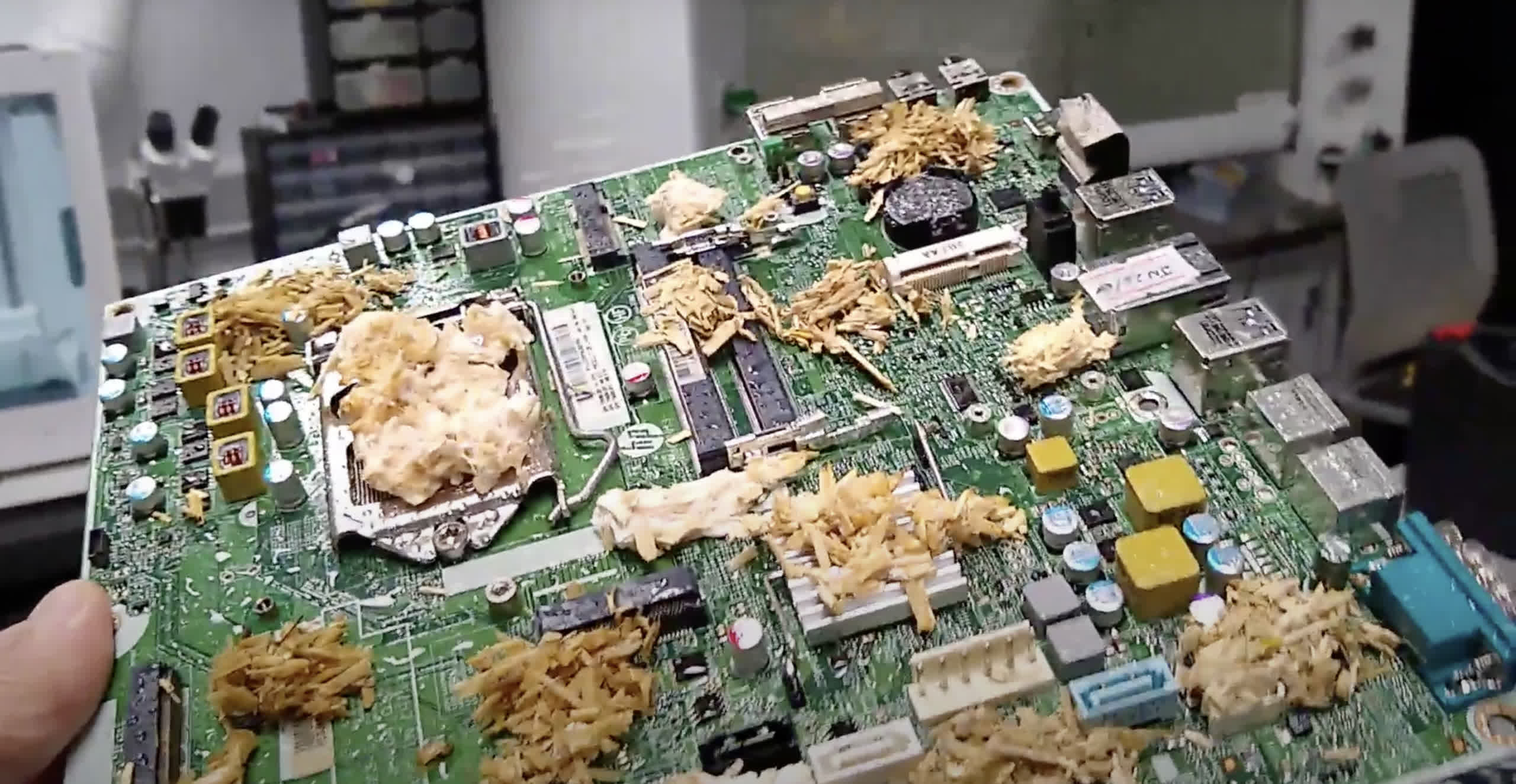Wetware: the concept of merging hardware and software with living tissue. It has been science-fiction fodder for decades. We've seen it in TV shows like Star Trek with the blind character Geordi La Forge's visor that allows him to see and in video games like the Deus Ex franchise, where all sorts of electronics can be fused to those who can afford it.
Much of science fiction is just an imaginative extension of scientific reality – wetware is nothing new. Neural interfaces and other devices have been in development for decades. Some of them even work to an extent. A primary obstacle has been getting solid-state components to communicate with organic material. The two are so dissimilar it's challenging to create a way to translate one to the other, but what if electronics were made from organic matter?
That's what researchers at the Unconventional Computing Laboratory (UCL) at the University of the West of England (UWE Bristol) want to discover. The scientists there have developed a mushroom computer.
According to lead researcher, professor Andrew Adamatzky, mushrooms are an ideal organism to experiment with because their mycelium acts much like the human brain. Mycelia are thin hair-like parts of a fungus's root system that can transmit electrical impulses, not unlike synapses. In fact, mushrooms connected to the same network of mycelia underground can sometimes communicate with electrical signals over substantial distances.
This trait allowed the scientists to use mushrooms as motherboard component analogs. Spikes of electrical activity, or the lack of them, are translated into ones and zeros, respectively, mimicking the ingrained binary language of computers.
"We found actually that mushrooms produce action potential-like spikes. The same spikes as neurons produce," Adamatzky told Popular Science. "We're the first lab to report about spiking activity of fungi measured by microelectrodes, and the first to develop fungal computing and fungal electronics."
As you would expect, mushroom computers cannot compare to traditional hardware. While Adamatzky maintains that stimulating the fungus at two separate points increases conductivity for faster and more reliable communication, it's not near the speed of solid-state electronics. However, it does allow the mushrooms to establish memories. Adamatzky equates it to how the human brain forms habits.
"Right now, it's just feasibility studies. We're just demonstrating that it's possible to implement computation, and it's possible to implement basic logical circuits and basic electronic circuits with mycelium," Adamatzky explained. "In the future, we can grow more advanced mycelium computers and control devices."
The research may also lead to advancements in machine/brain interfacing, which has applications in the fields of prosthetics and behavior control disorders like Alzheimer's and Parkinson's disease.

